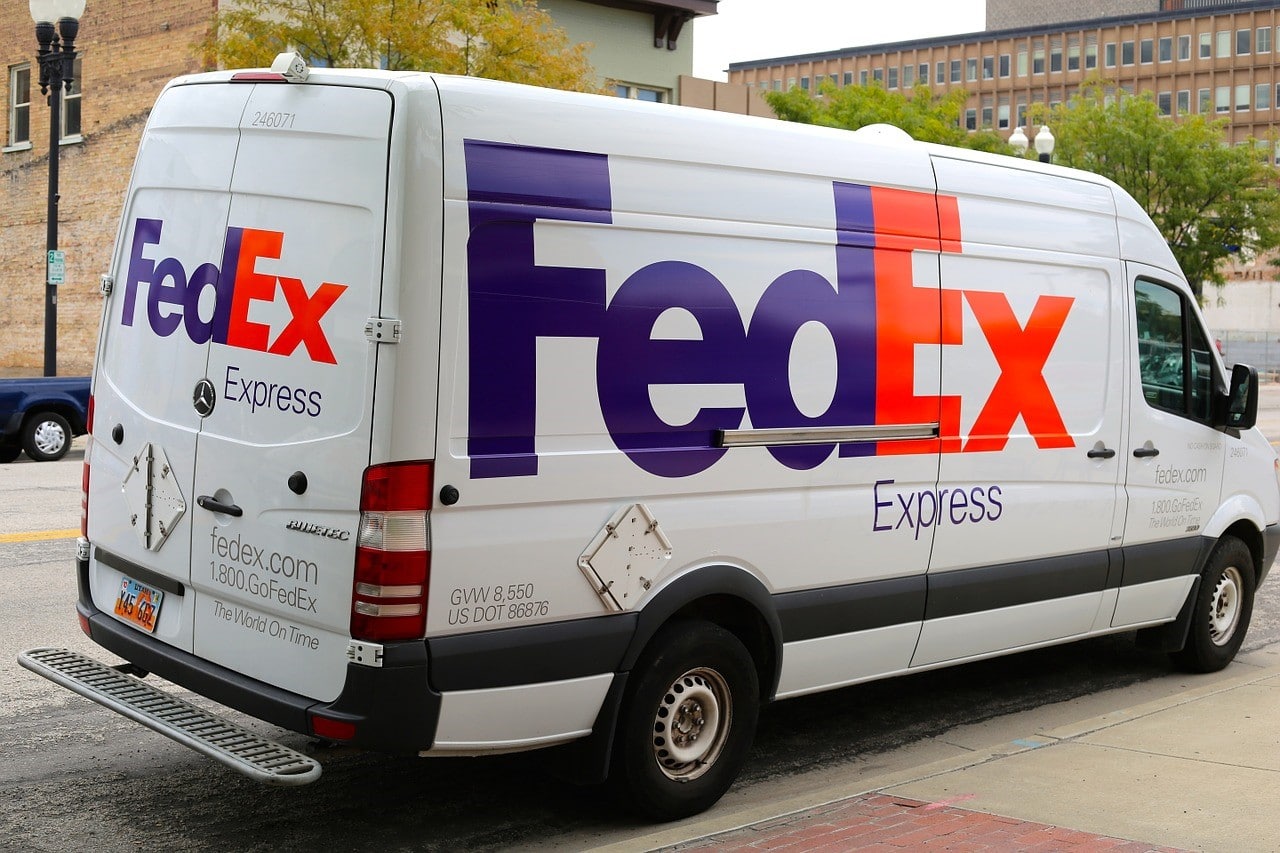Company: FedEx Corporation
CEO: Raj Subramaniam
Founders: Frederick Wallace Smith
Year founded: April 17th, 1973
Headquarter: Memphis, Tennessee, U.S
Number of Employees (2022): 550,000
Type: Public
Ticker Symbol: FDX
Annual Revenue (2022): $93.5 Billion
Profit | Net income (2022): $3.8 Billion
Products & Services: Courier | Logistics | Freight | Sales | Marketing | Information Technology | Communications | Customer Service | Technical Support | Billing and Collection Services | Back-Office Functions
Competitors: United Parcel Service (UPS) | DHL International | Kuehne + Nagel | CEVA Logistics | Blue Dart | Royal Mail | C.H. Robinson | Deutsche Post | DB Schenker | GLS | XPO Logistics | Purolator | YRC Freight | Amazon | Uber Freight
Fun Fact: Did you know that Frederick Wallace Smith wrote the concept behind FedEx as a term paper when he was an undergrad at Yale University?
From an idea in a student’s term paper to a global powerhouse in courier, logistics, and freight, we can learn a lot from FedEx SWOT analysis.
FedEx’s Strengths
1. Brand Reputation
FedEx is highly regarded as a brand. It is well known for reliability, speed, and high-quality service. According to Forbes 2019 ranking, FedEx was ranked at the following : [1]
- #35 Top Regarded Companies
- #51 World’s Best Employers
- #89 World’s Most Valuable Brands.
2. Variety of Services
Offering the widest variety of services ensures that all potential customers in a market can turn to the company to fulfill their needs. With 428,000 motivated employees, FedEx offers a wide range of services to domestic and international customers. FedEx has the following business segments:
- FedEx Express: Express transportation services
- FedEx Ground: Small- package ground delivery services
- FedEx Freight: Freight priority and economy services
- FedEx Services provides business services, print services, sales, marketing, technology services
3. Brand Valuation
According to Interbrand, FedEx has a brand value of $6.9 Billion in 2019. [2]
4. Extensive Global Network and Supply Chain
FedEx operates in 220 countries across the world, with 2150 offices, 370 service locations, 13 Air Express hubs, 39 Ground hubs, and 1,950 operation express stations. From America to Europe, Asia, and across the world, FedEx’s unparalleled global network reaches every corner. [3]
5. Competitive Prices
Regardless of what you are selling, price matters to consumers. FedEx exploits economies of scale to offer quality service at a competitive price. [4]
6. Time-critical deliveries
When it comes to package deliveries, time is of the essence. If a customer orders an overnight delivery, they are assured (with a real-time tracking) that FedEx will deliver on their doorstep the next day, which has enabled attraction and retention of customers.
7. Profitable Acquisitions
Through acquisitions, FedEx has broadened its global reach and services with subsidiaries such as:
- Kinko’s Inc. (2004)
- Parcel Direct (2004)
- Watkins Motor Lines (2006)
- Prakash Air Freight (2007)
- TATEX (2012)
- GENCO (2015)
- TNT Express (2016)
- Flying Cargo Group (2019)[5].
8. Effective Marketing
From famous Tom Hank’s movie like Cast Away to sports, and creative TV ads, FedEx has exploited the power of marketing with a purpose very effectively.
Some of the FedEx sponsor events:
- FedEx Cup on the PGA Tour
- French open tennis tournament
- ATP World Tour men’s professional tennis circuit
- NASCAR Sprint Cup series
- National Football league (NFL)
9. Electric Trucks
FedEx has made a reservation of 20 Tesla fully electric trucks. FedEx has always focused on sustainability and utilizing alternative-fuel vehicles to increase efficiency in operations and fuel usage. [6]
FedEx’s Weaknesses
1. Overdependence on US Market
A large portion (68%) of FedEx’s revenue comes from the US market. $47.5 Billion out of total revenue of $69.69 Billon comes from the US market. In the event of economic challenges in the US market, FedEx’s revenue can decline drastically.
2. Lack of Diversification
Just like any service business, FedEx’s stability can be enhanced through diversification of its services.
3. Delivery Drivers Behavior
Improper handling of packages, rude behavior, rash driving by its drivers can be detrimental for the reputation of the company. Often times, these drivers are contract-based and non-FedEx employees, which makes it even harder to take any action.
4. Increasing Transport Costs
To meet the increased demand, FedEx hires third party transportation contractors. This constitutes about 24% of its expense in FY2019. Its purchased transportation costs are increasing rapidly across the world. If transportation costs continue to increase, it can be particularly devastating to the bottom line of FedEx.
5. Frustrating Claim Policies
More and more customers are increasingly becoming frustrated by FedEx’s claim policies in case their products are damaged in transit. If the company does not address issues with its claim policy, it can lose out on the ever-increasing number of online shoppers.
6. Poor Management of Capacity-Demand
While having a substantial capacity to handle a large volume of packages in the logistics sector is the winning strategy, poor management can lead to under-utilized capacity. FedEx has made a significant investment in aircraft, vehicles, technology, package facilities, etc. Considering these are fixed costs, any uncertainty in the volume level can severely affect the profitability of the company.
FedEx’s Opportunities
1. Expand into Emerging Markets
Demand for the courier, logistics, and freight services, is increasing rapidly in emerging economies in Asia, Africa, and Latin America, along with improvement in economic situation. FedEx can expand its operations in these economies to tap into the growing demand.
2. Focus on retail e-Commerce
Global retail e-commerce sales are forecasted to grow from $3.5 trillion in 2019 to $6.5 trillion in 2023. FedEx has the opportunity to capitalize on the growing demand for delivery services in the retail e-commerce sector. [7]
3. Diversify Portfolio
With its extensive global network already functional, FedEx has a major advantage over many online retailers. FedEx can diversify its portfolio by entering into the online retail sector.
4. Expand through Mergers and Acquisition
Instead of investing immensely to set up from scratch in new markets, FedEx can exploit its vast financial resources to acquire small and medium couriers in these markets for quick expansion.
5. Innovation
FedEx continuously innovates to fulfill customer needs. It has gained the trust and business of major corporations and ordinary consumers. FedEx is currently one of the most innovative companies in logistics and freight. For example,
- Package Tracking: FedEx was the first logistics company to provide package tracking
- SameDay Bot Delivery: FedEx has collaborated with DEKA (inventor of Segway) to develop an autonomous delivery robot “iBot.” In addition, FedEx is working with retailers such as Target, Walgreens, Walmart, and Pizza Hut to help with their delivery.
- Blockchain technology will be an essential tool to track and reduce fraud in cross-border shipments.
- Platooning of highway trucks to improve safety: FedEx is testing the practice of platooning of trucks, in which two or more trucks maintain a close distance between each other in a controlled manner using connectivity technology.
FedEx’s Threats
1. Stiff Competition
From DHL to UPS, YRC, Old Dominion, XPO, Kuehne + Nagel, CEVA, and many more, FedEx is losing market share to old and new players in the courier, logistics, and freight sector. If stiff competition increases, long-term sustainability will be a challenge for FedEx.
2. New rivals: Amazon and Uber Freight
Amazon, a customer of FedEx, and Uber Freight are gearing up to compete with FedEx. For example, Amazon is slowly breaking ties with FedEx Ground transportation, and simultaneously Amazon has been establishing a network of hubs, vehicles, and aircraft to expand its logistics and transportation capabilities. If Amazon expands its in-house transportation capabilities, it can pose a severe risk to FedEx’s revenue and market share. Uber [8]
3. Anti-Globalization Movement
Over a few years, more countries have adopted anti-globalization ideologies in a regressive and misguided attempt to defend their interests against globalization. FedEx’s expansion relies heavily on an open door and globalist policies. If anti-globalization ideologies spread further, the company may be forced to retreat back to a national US operator. [9]
4. Unstable Fuel Prices
While the production cut has reduced the price of fuel globally, oil prices remain highly volatile with drastic drops and spikes. Uncertainty in the business environment is always bad for affected players. [10]
5. Stronger Labor Laws
Governments are increasingly protecting their citizens working for global conglomerates by adopting stronger labor laws. With hundreds of thousands of employees globally, even a small increase in wages can easily translate to billions. [11]
6. Government to Government relationships
FedEx is highly vulnerable to anti-trade policies and global trade wars. Trade tension between the US and China, sanctions, embargoes, and trade control can have severe adverse effects on FedEx international transportation business.
7. Uncertain times
With planes, trains, trucks, and transport across the world still struggling to restart after lockdown, FedEx’s operation will continue to be threatened until the world fully reopens for business. [12]
8. Looming Global Recession
With uncertain economies globally, some markets that FedEx depends on are already sliding into recession. FedEx’s profits declined drastically in the first quarter of 2020, and it can worsen in the future if the global recession persists. [13]
References & more information
- Forbes (2019). Company Profile: FedEx. Forbes Ranking
- Interbrand
- FedEx | Company Structure & facts
- James Messer (April 1, 2020) Cheapest Way to Ship. Ship Station
- FedEx | Company Overview
- FedEx Newsroom (March 26, 2018) FedEx Reserves 20 Tesla Semi Electric Trucks
- Lipsman, A. (2019, June 27). Ecommerce Continues Strong Gains Amid Global Economic Uncertainty. eMarketer
- Mullaney, T. (2019, June 25). FedEx’s double-edged sword: New rivals Amazon and Uber aim to slash its business. CNBC
- Kelleher, K. (2019, September 18). FedEx Fails to Deliver on Earnings. And That’s a Bad Sign for the Global Economy. Fortune
- Ambrose, J. (2020, April 15). Oil prices slump as the market faces the lowest demand in 25 years. The Guardian
- Sainato, M. (2020, January 14). FedEx mounts big-money push to head off unionization by US workers. The Guardian
- The Fool (2019, June 28). Here’s Why FedEx Sees Potholes on the Road Ahead. The Motley Fool
- Duffy, C. (2019, December 18). FedEx CFO: Our profit drop was ‘horrific.’ CNN Business
- FedEx Annual Report
- Featured image by John R Perry from Pixabay
- Business Wire. (2019, January 17). FedEx Trade Networks Rebrands as FedEx Logistics. Business Wire
- Greenfield, M. (2020, January 21). R&D Tax Credits for Innovations in Transport, Logistics, and Distribution. Berdon Lip
- McGee, C. (2019, June 25). Express business weighs on FedEx profit. Market Watch
- Baertlein, L. (2019, December 18). FedEx cuts 2020 profit forecast – again – as seven-day delivery costs weigh. Reuters
- 71lbs Staff. (2019, November 27). How to File a Shipping Claim With FedEx or UPS. 71lbs
- Paul Ziobro (June 23, 2019) FedEx Slashes Prices to Fill Its Planes. The Wall Street Journal
- Technavio (2020, January 10).Global E-commerce Logistics Market 2019-2023: Opportunities for Aramex and FedEx. Business Wire
- Elassar, A. (2020, March 16). Mail services, including the USPS and FedEx, will continue delivering despite coronavirus. CNN
- Trefis Team. (2019, December 9). FedEx Spends 25%, 35% Or 45% of Its Money On Purchased Transportation? Forbes.
Tell us what you think? Did you find this article interesting?
Share your thoughts and experiences in the comments section below.












Add comment